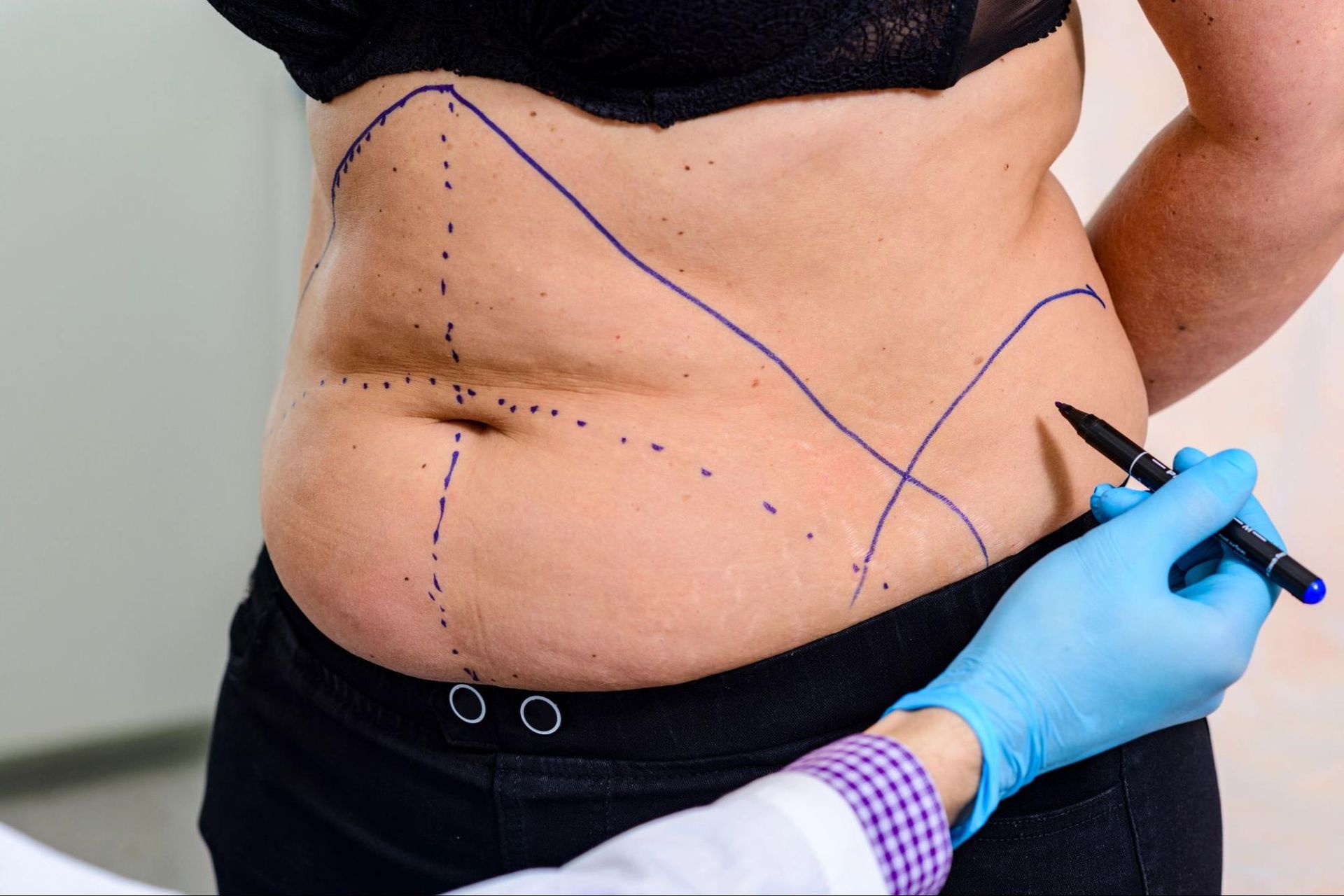Gallbladder Disease After Weight Loss: Causes, Risks, and Prevention
How Weight Loss Affects the Gallbladder
Significant weight loss, especially when it happens rapidly, increases the risk of gallbladder disease, primarily gallstones. In developed countries, gallstones affect 10% to 15% of adults, but most cases remain asymptomatic. In fact, up to 80% of individuals with gallstones never experience symptoms such as:
- Biliary pain (pain caused by gallstone obstruction)
- Acute cholecystitis (gallbladder inflammation)
- Cholangitis (bile duct infection)
- Pancreatitis (inflammation of the pancreas)
Gallbladder Disease Risk After Bariatric Surgery
Following bariatric surgery, studies report that 3% to 28% of patients develop symptomatic gallbladder disease. While this is higher than the general population, most research suggests the increase is not substantially greater compared to those who lose weight through non-surgical means.
Why Rapid Weight Loss Increases Gallbladder Disease Risk
Several physiological changes occur in the body during rapid weight loss, increasing the risk of gallstone formation:
- Imbalance in Bile Composition – Bile contains cholesterol, bile salts, and other substances. During rapid weight loss, cholesterol levels in bile increase, leading to gallstone formation.
- Reduced Gallbladder Emptying – A healthy gallbladder contracts regularly to release bile into the digestive system. However, during weight loss, caloric restriction and dietary changes may lead to sluggish gallbladder function, allowing bile to stagnate and form stones.
- Increased Fat Breakdown – Fat breakdown during weight loss releases excess cholesterol into bile. If the bile becomes oversaturated with cholesterol, it crystallizes, forming gallstones.
- Hormonal Changes – Weight loss alters the balance of hormones such as cholecystokinin (CCK), which regulates gallbladder contractions. A drop in CCK levels reduces gallbladder activity, increasing the risk of stone formation.
- Gastric Bypass Surgery and Gallbladder Disease – Patients who undergo gastric bypass surgery experience faster weight loss and metabolic shifts, which further increase the likelihood of gallstones.
Can Gallbladder Disease Be Prevented After Weight Loss?
While gallstones cannot always be prevented, certain strategies may help reduce the risk of developing symptoms or complications:
- Gradual Weight Loss – Losing weight slowly and steadily (around 1-2 kg per week) may help prevent gallstone formation. However, this is not always possible, especially after bariatric surgery.
- Healthy Fat Intake – Incorporating small amounts of healthy fats (e.g., olive oil, nuts, and avocados) into the diet can stimulate the gallbladder to contract, reducing bile stagnation.
- Ursodeoxycholic Acid (UDCA) – Some studies suggest that taking ursodeoxycholic acid (a medication that dissolves cholesterol-based gallstones) for the first few months after bariatric surgery may lower the risk of gallstone formation.
- Avoiding Prophylactic Gallbladder Removal – Preventative gallbladder removal (cholecystectomy) at the time of bariatric surgery is generally not recommended for asymptomatic patients, as the risks often outweigh the benefits.
If you are planning weight loss surgery or undergoing significant weight loss, it is important to be aware of potential gallbladder issues. While not everyone will develop symptoms, knowing the risk factors and taking preventative measures can help maintain optimal digestive health.
Reference:
- Amorim-Cruz F, Santos-Sousa H, Ribeiro M, et al.
Risk and Prophylactic Management of Gallstone Disease in Bariatric Surgery: A Systematic Review and Bayesian Meta-Analysis. J Gastrointest Surg. 2023 Feb;27(2):433-448.


















